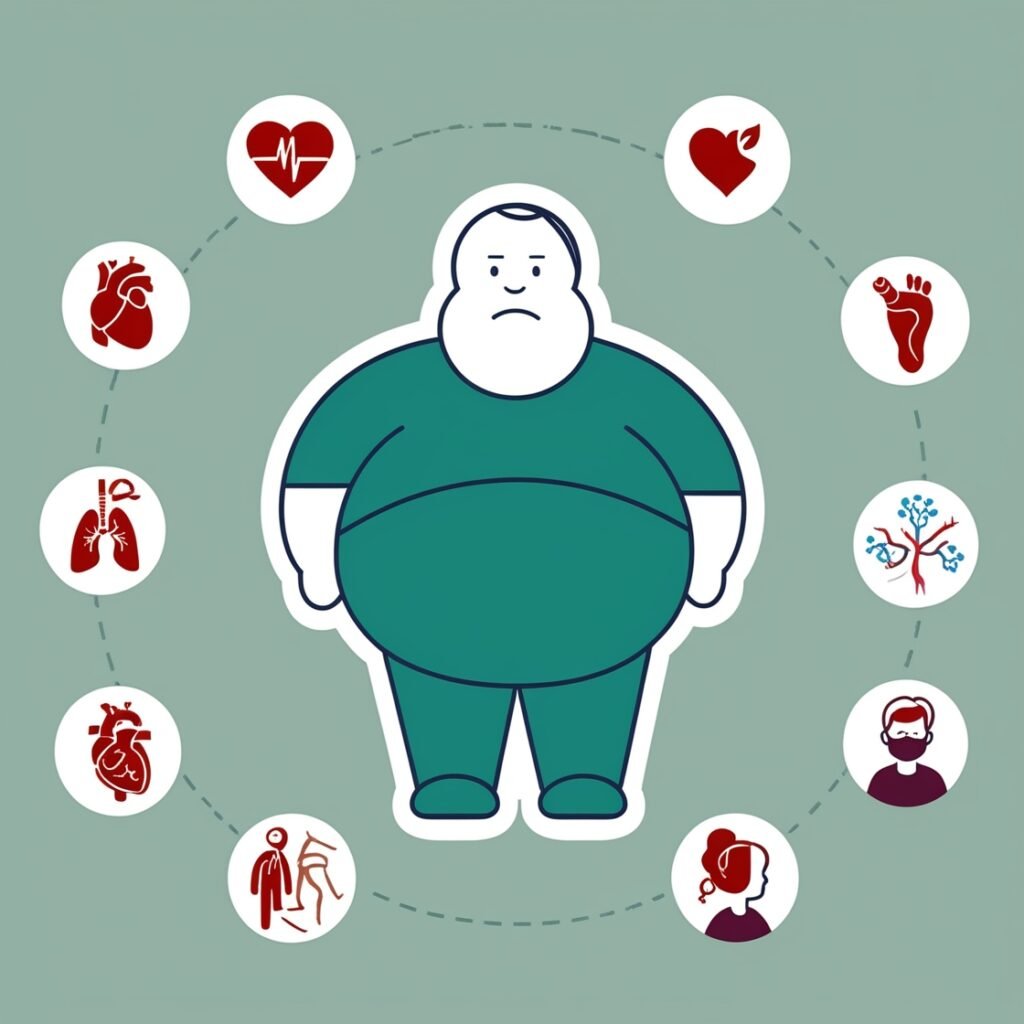Introduction
Are you curious about how hypnotherapy works and the powerful benefits it can offer? While often portrayed as mysterious or even magical, hypnotherapy is grounded in science and offers a unique path to address a range of health concerns, from managing stress and anxiety to enhancing self-confidence and even supporting addiction recovery. Imagine a therapeutic approach that taps into your mind’s natural ability to heal and adapt, helping you overcome challenges and build new, healthier habits.
In this post, we’ll take you through the fascinating world of hypnotherapy, breaking down the process, exploring the different techniques, and uncovering the many ways it can boost your mental and physical well-being. Whether you’re a skeptic or simply new to the concept, understanding how hypnotherapy truly works can be an eye-opener. So, let’s dive in and explore how hypnotherapy might be the gentle, transformative tool you didn’t know you needed!
Table of Contents
Understanding Hypnotherapy
Hypnotherapy might sound like something out of a stage show, but it’s actually a powerful, science-backed approach to healing and self-improvement. So, what exactly is hypnotherapy, and how does it work? Hypnotherapy is a type of therapy that uses hypnosis—a deep state of focused relaxation—to help people make positive changes in their thoughts, feelings, and behaviors. Unlike common misconceptions, hypnotherapy isn’t about mind control or “putting you under.” Instead, it’s a collaborative process where the therapist guides you to access your subconscious mind, allowing for healing, insight, and personal growth.
What Is Hypnotherapy?
Hypnotherapy uses guided relaxation techniques to bring you into a state of heightened awareness, where your mind is more receptive to positive suggestions. This relaxed state can help bypass the critical, often limiting thoughts that may prevent you from reaching your full potential or addressing certain issues. Essentially, hypnotherapy opens a door to your inner self, creating space to explore and resolve deep-rooted challenges.
Types of Hypnotherapy
Hypnotherapy isn’t a one-size-fits-all approach. Different methods are used to address varying needs, making it a versatile option in mental health and self-improvement. Some of the most common types include:
- Traditional Hypnotherapy: Uses direct suggestions to influence behavior. Ideal for habit change, such as quitting smoking.
- Ericksonian Hypnotherapy: Focuses on storytelling and indirect suggestions to guide change subtly and effectively.
- Cognitive-Behavioral Hypnotherapy (CBH): Combines elements of CBT and hypnotherapy to address issues like anxiety and phobias through a structured, evidence-based approach.
Each of these methods works slightly differently, allowing hypnotherapists to tailor sessions to fit specific goals and challenges.
Common Misconceptions About Hypnotherapy
Many people are hesitant to try hypnotherapy because of myths and misunderstandings. Here are some of the most common misconceptions—and the truth behind them:
- “I’ll lose control of my mind.” In reality, hypnotherapy doesn’t make you lose control; it actually enhances your focus and concentration.
- “Only certain people can be hypnotized.” Most people can enter a hypnotic state if they’re open to it. It’s a natural state of mind similar to getting lost in a good book or movie.
- “Hypnotherapy is just for entertainment.” While stage hypnosis might be fun, therapeutic hypnotherapy is a legitimate, researched form of treatment that’s used to address real issues.
Who Can Benefit from Hypnotherapy?
Hypnotherapy can benefit a wide range of people. Whether you’re struggling with stress, looking to break a habit, or seeking new insights into yourself, hypnotherapy can offer effective support. Some common applications include:
- Stress and Anxiety Relief: Hypnotherapy helps individuals manage stress by guiding them to a calmer state of mind and addressing underlying causes.
- Pain Management: Particularly useful for chronic pain and conditions where traditional medicine may fall short.
- Overcoming Phobias and Fears: Hypnotherapy gently helps address phobias by gradually reducing the fear response.
- Boosting Confidence and Self-Esteem: Positive suggestions during hypnotherapy can help build a stronger, more positive self-image.
Hypnotherapy isn’t about giving up control; it’s about harnessing the power of your mind to create real, lasting change. By opening yourself up to this approach, you may find that it provides the tools to take on challenges you never thought possible.
The Science Behind Hypnotherapy
Hypnotherapy may seem like a mysterious process, but there’s a fascinating science behind how it works. Let’s break down what actually happens in your brain during hypnosis and why this altered state of consciousness can be so powerful for self-improvement and healing. If you’ve ever wondered how something as simple as focused relaxation can lead to profound changes, you’re about to get a closer look.

How Hypnosis Affects the Brain
Hypnotherapy works by shifting your brain into a state of heightened awareness and suggestibility, often referred to as a “hypnotic trance.” When you’re in this state, your brain experiences specific changes in activity, which scientists can observe through brain imaging studies. Here’s what happens:
- Increased Alpha and Theta Brain Waves: These brainwave frequencies are associated with deep relaxation and heightened creativity. During hypnosis, alpha and theta waves become more dominant, similar to what happens during meditation or the moments right before sleep.
- Reduced Activity in the Default Mode Network: This network is where your mind typically “wanders” or engages in self-reflective thoughts. Hypnotherapy can quiet this network, helping you focus more deeply on therapeutic suggestions without distractions.
- Heightened Focus and Concentration: The state of hypnosis narrows your attention, making it easier to focus on specific thoughts, emotions, and suggestions that might be harder to access in everyday life.
The Process From Induction to Deepening
A typical hypnotherapy session is structured to gradually guide you from a fully conscious state to a deeper, more receptive one. Here’s a step-by-step look at what happens:
- Induction: This is where the therapist helps you relax and guides you into a hypnotic state. They might use techniques like deep breathing, counting down, or visual imagery to help calm your mind and body.
- Deepening: Once you’re in a relaxed state, the therapist deepens the hypnosis. This phase is designed to lower mental resistance, opening up a “bridge” to your subconscious mind where core beliefs, memories, and emotions reside.
- Suggestion Therapy or Analytical Work: Depending on your goals, the therapist will use specific suggestions to encourage positive changes, such as overcoming a fear or building confidence. Alternatively, analytical hypnotherapy may be used to explore underlying issues contributing to current challenges.
- Awakening: At the end of the session, the therapist gently brings you back to full awareness, leaving you with a sense of calm and clarity.
How Hypnosis Differs from Meditation and Mindfulness
While hypnosis, meditation, and mindfulness all involve relaxation and focused awareness, they’re actually quite distinct practices:
- Meditation: Often centers around observing thoughts without judgment, promoting a calm, open mindset. Meditation doesn’t typically involve suggestions or aim to create behavioral change, whereas hypnotherapy does.
- Mindfulness: Focuses on staying present and fully aware of each moment, often with the goal of reducing stress or improving mental clarity. Mindfulness is a way of thinking, while hypnosis is more of an active process for accessing the subconscious mind.
- Hypnosis: Actively engages the subconscious mind and works with specific goals in mind, such as habit change or emotional healing. Hypnotherapy is unique because it combines the relaxation benefits of meditation with targeted therapeutic suggestions.
Research Supporting It’s Effectiveness
Although some people may be skeptical, scientific research has shown that hypnotherapy can be effective for a wide range of issues, from chronic pain to anxiety. In fact, studies have demonstrated that:
- Hypnotherapy can reduce chronic pain by decreasing the brain’s sensitivity to pain signals, offering an alternative to medication for many people with long-term conditions.
- Anxiety and stress are notably reduced through hypnotherapy, as studies have shown changes in brain regions associated with emotional regulation and a reduction in the stress hormone cortisol.
- Behavioral changes, such as quitting smoking or improving sleep, are often achieved faster with hypnotherapy than with other forms of talk therapy, due to its direct approach in accessing and influencing the subconscious mind.
By understanding the science behind hypnosis, you can appreciate the carefully structured process that helps make real, lasting change possible. Hypnotherapy isn’t just about relaxation; it’s about rewiring thought patterns and unlocking potential.
Techniques
Hypnotherapy isn’t a one-size-fits-all solution; it uses a range of techniques to meet different needs and goals. Depending on your situation—whether you’re trying to quit a habit, manage pain, or boost confidence—your hypnotherapist might choose one or more specific techniques to support you. Each approach is crafted to tap into your subconscious mind, where deep-rooted beliefs and patterns reside, allowing for effective, lasting change.

1. Suggestion Therapy
Suggestion therapy is one of the most commonly used hypnotherapy techniques. In this method, the hypnotherapist provides positive suggestions tailored to your goals while you’re in a relaxed, focused state. This approach is highly effective for modifying habits, such as:
- Breaking unwanted habits (e.g., smoking, nail-biting)
- Boosting motivation for positive changes, like regular exercise or healthier eating
- Improving self-confidence by planting affirming beliefs
Suggestion therapy is particularly effective because it bypasses the conscious mind’s defenses, enabling the subconscious to readily absorb these positive messages.
2. Analytical Hypnotherapy (Hypnoanalysis)
Sometimes, challenges are rooted in unresolved emotions or past experiences. Analytical hypnotherapy, also known as hypnoanalysis, focuses on uncovering these deep-seated issues to facilitate healing. This technique is especially helpful for:
- Overcoming phobias and fears by exploring their origins and reframing associated beliefs
- Addressing emotional trauma by revisiting past memories in a safe, guided setting
- Managing anxiety and stress through a better understanding of their root causes
During hypnoanalysis, the therapist may guide you through a series of questions or imagery exercises, helping you make connections that provide insight and release emotional blocks.
3. Cognitive-Behavioral Hypnotherapy (CBH)
CBH combines the principles of cognitive behavioral therapy (CBT) with hypnotherapy techniques. This approach is highly structured and goal-oriented, making it effective for addressing issues like:
- Anxiety and stress management, through thought restructuring and relaxation techniques
- Phobia treatment, where specific fears are gradually reframed and reduced
- Behavior modification, such as weight loss, by replacing negative beliefs with healthier attitudes and actions
CBH is particularly useful for individuals who prefer a methodical, evidence-based approach and want to see tangible results from their sessions.
4. Ericksonian Hypnotherapy
Named after psychiatrist Milton Erickson, this technique uses indirect suggestions, storytelling, and metaphors to create subtle changes in thought and behavior. Ericksonian type is ideal if you’re looking for a more relaxed, less directive approach. It can help with:
- Building self-confidence by reinforcing positive qualities through stories and imagery
- Encouraging creativity and problem-solving by engaging the subconscious in a playful, flexible way
- Increasing adaptability to change, whether in relationships, work, or personal goals
This approach is gentle yet powerful, allowing the subconscious to “fill in the gaps” with insights that align naturally with your personal beliefs.
5. Regression Therapy
In regression therapy, the therapist guides you to revisit past experiences, sometimes even as far back as childhood. This process helps reveal and resolve experiences that may have contributed to current challenges. Regression therapy is especially useful for:
- Trauma and emotional release: Revisiting past events in a safe space allows for healing and closure.
- Self-discovery: Understanding how past experiences shaped your beliefs and behaviors can be transformative.
- Overcoming fears and phobias: By understanding the origin of certain fears, you can work through them more effectively.
Regression therapy requires a sensitive, skilled therapist, as it involves working with potentially difficult emotions, but the insights gained can be life-changing.
Choosing the Right Technique for You
Each hypnotherapy technique offers unique benefits, so how do you know which is right for you? Typically, your therapist will assess your goals and discuss which methods will best suit your needs. Often, a combination of techniques may be used to provide a holistic and personalized experience.
Hypnosis is a powerful tool for personal transformation, with methods tailored to help you conquer challenges, whether they’re rooted in present habits or past experiences.
Health Benefits of Hypnosis
Hypnotherapy is increasingly recognized as a legitimate therapeutic tool for improving mental, emotional, and physical well-being. If you’re considering it, you might wonder: What specific benefits can I expect?
1. Reduces Anxiety and Stress
One of the most common reasons people go to a hypnotherapist is for help with anxiety and stress relief. Through relaxation techniques and positive suggestion therapy, hypnosis can:
- Lower cortisol levels: Stress hormones like cortisol decrease, helping you feel more relaxed even after the session ends.
- Improve sleep quality: By calming racing thoughts and reducing anxiety, hypnotherapy can contribute to better, more restful sleep.
- Strengthen resilience: Hypnotherapy encourages positive thinking, equipping you with mental tools to handle stress more effectively.
2. Manages Chronic Pain
For those dealing with chronic pain conditions—like fibromyalgia, arthritis, or lower back pain—hypnotherapy offers a drug-free alternative to manage symptoms. Pain management hypnotherapy works by:
- Altering pain perception: Hypnosis can help your brain “turn down” pain signals, reducing the intensity of the pain sensation.
- Relaxing muscle tension: Many people with chronic pain find relief when muscles release tension, which often happens during hypnotherapy sessions.
- Improving emotional responses to pain: Hypnosis addresses emotional aspects of pain, helping you build a healthier relationship with your body and its signals.
3. Supports Weight Loss and Healthy Habits
Hypnotherapy can be a powerful motivator for those looking to improve their relationship with food, exercise, or other lifestyle habits. It can assist in:
- Building positive eating habits: Hypnosis can reduce emotional eating by helping you become more mindful of hunger cues and cravings.
- Boosting motivation for physical activity: Suggestions around the enjoyment and benefits of exercise make it easier to get moving and stay active.
- Addressing underlying self-esteem issues: Hypnosis can boost confidence, helping you feel empowered to make healthier choices.
4. Helps with Smoking Cessation
Hypnotherapy has been shown to be particularly effective for quitting smoking. By targeting both the psychological and habitual components of smoking, it can:
- Reduce cravings: Suggestion therapy can help lessen your desire to smoke, making it easier to resist the urge.
- Break the routine: Hypnosis works on automatic behaviors, helping you avoid those times or places where smoking usually happens.
- Strengthen resolve: Positive reinforcement can boost your commitment to remaining smoke-free, even in challenging situations.
5. Enhances Focus and Performance
Hypnotherapy isn’t only for overcoming challenges—it’s also a powerful tool for personal growth and achievement. Many people, from athletes to executives, use hypnotherapy to:
- Improve concentration: Hypnotherapy can sharpen focus, making it easier to stay present in high-stakes situations.
- Build confidence and resilience: Hypnosis helps reinforce self-belief, a crucial factor for achieving goals and overcoming setbacks.
- Reduce performance anxiety: Hypnosis can decrease nervousness, allowing you to perform at your best without fear holding you back.
6. Boosts Emotional Healing and Self-Esteem
If you’re dealing with past traumas or struggling with self-worth, hypnosis can help you work through emotional blocks and foster a positive self-image. It can:
- Uncover and release unresolved emotions: Hypnosis helps bring suppressed memories to light in a controlled, safe way, allowing for emotional healing.
- Reframe negative beliefs: Hypnotherapy can guide you in replacing limiting beliefs with affirming ones, building a stronger sense of self-worth.
- Cultivate self-acceptance: Hypnotherapy encourages self-compassion, helping you view yourself in a positive, non-judgmental light.
What to Expect During a Hypnotherapy Session
If you’re considering hypnotherapy, you’re likely wondering what a typical session entails. It can be a deeply relaxing and transformative experience, but understanding the process beforehand can help ease any uncertainties. Let’s walk through what you can expect from the initial consultation to the actual hypnosis.

1. Initial Consultation and Goal Setting
The process usually begins with a consultation to discuss your goals, concerns, and any questions you might have. This part of the session is key for creating a comfortable, trusting environment. During this time, your hypnotherapist will likely:
- Learn about your history: They’ll ask about your background, any past experiences with therapy, and your reasons for seeking hypnotherapy.
- Clarify your goals: Whether you’re looking to overcome anxiety, quit smoking, or boost self-confidence, defining your goals helps guide the session.
- Address any concerns: Many people have questions about hypnosis, and this is a good time to address any fears or misconceptions.
2. The Hypnosis Induction Process
Once the goals are clear, the hypnotherapist will guide you into a state of relaxation to prepare your mind for the session. Hypnosis induction is often gentle and progressive, involving:
- Focused breathing: The therapist might begin by guiding you through deep, slow breaths to relax your body and mind.
- Progressive muscle relaxation: Many hypnotherapists use muscle relaxation techniques to release physical tension and ease you into a calm, comfortable state.
- Visual imagery or countdown techniques: Some practitioners use visualizations or countdowns (like counting down from 10) to deepen relaxation and shift focus away from external distractions.
This stage is key for transitioning into a state where your subconscious mind is more receptive to positive suggestions and therapeutic guidance.
3. The Hypnotic State and Suggestion Phase
Once you’re in a relaxed, focused state, the hypnotherapist will begin the therapeutic part of the session. During this phase, you’ll remain aware of what’s happening, but your mind will be more open to positive suggestions. Here’s what typically happens:
- Guided visualization: The therapist may ask you to imagine specific scenarios related to your goals, such as feeling confident in a social situation or envisioning yourself resisting a cigarette.
- Positive affirmations and suggestions: Hypnotherapy often uses affirmative phrases to reinforce desired changes, like “You are strong and capable” or “You feel calm and in control.”
- Behavioral shifts: For habit-focused goals (like weight loss or smoking cessation), the therapist may suggest healthier alternatives to your existing behaviors, helping reinforce new habits.
The hypnotic state makes these suggestions more impactful, as the subconscious mind absorbs them without the usual mental resistance we often have in a fully awake state.
4. Gradual Return to Awareness
After the suggestion phase, the hypnotherapist will gently guide you back to full awareness. This is a slow, calm process to ensure you feel grounded and comfortable as you come out of hypnosis. Here’s how it typically unfolds:
- Gradual cues to return: The therapist may count up from one to five, helping you gradually shift from a relaxed state to full awareness.
- Re-orientation: Many therapists will give you a moment to re-orient yourself, encouraging gentle movements or deep breaths as you come back to full consciousness.
- Post-session discussion: Some hypnotherapists will debrief with you after the session to discuss how you feel, any experiences you had, and insights you gained.
5. Follow-Up and Personalized Guidance
Hypnotherapy often works best as a process, and you may benefit from multiple sessions to reinforce positive changes. At the end of each session, your hypnotherapist might:
- Suggest follow-up sessions: Depending on your goals, they may recommend a series of sessions to achieve lasting results.
- Provide take-home techniques: Some therapists give you simple self-hypnosis or relaxation exercises to practice on your own.
- Track progress: For ongoing goals, like reducing anxiety or building self-esteem, tracking your progress can help fine-tune each session to maximize effectiveness.
Is Hypnotherapy Right for You? Exploring Who Can Benefit
If you’re considering hypnotherapy, you might wonder if it’s the right choice for you. It has shown promise across various areas, from emotional wellness to managing physical symptoms. Let’s explore who stands to benefit the most from this unique approach and why it’s worth considering for certain life challenges and goals.
1. For Those Seeking Stress and Anxiety Relief
Hypnotherapy has become a popular option for stress and anxiety management, as it taps into the subconscious mind, where many anxieties are rooted. It can help you by addressing these inner triggers:
- Identify stressors: Hypnosis encourages deep relaxation, allowing you to uncover subconscious sources of stress and anxiety.
- Develop coping mechanisms: Through visualization and positive reinforcement, hypnotherapy can equip you with new mental strategies for staying calm in stressful situations.
- Build a positive mindset: Hypnotic suggestions can reinforce affirmations that support a sense of peace and resilience, helping you handle life’s challenges with less anxiety.
If you struggle with chronic stress or anxiety, hypnotherapy may be a helpful addition to your toolkit.
2. People Looking to Overcome Unwanted Habits
Breaking habits can be incredibly challenging, especially when they’re ingrained in the subconscious mind. Hypnotherapy is frequently used to address habits like smoking, overeating, and nail-biting by:
- Reprogramming thought patterns: Through hypnosis, you can change the way your brain responds to triggers for certain habits, making them easier to resist.
- Strengthening willpower: Hypnotic suggestions can bolster your resolve, making it easier to stay committed to change.
- Visualizing success: Hypnotherapy often involves imagining yourself free from the unwanted habit, which can help reinforce your commitment to positive behavior.
Hypnotherapy is especially effective for those who have tried to quit a habit through traditional methods and need extra support in changing deep-rooted behaviors.
3. Individuals Coping with Chronic Pain
For many people dealing with chronic pain, finding relief that doesn’t rely solely on medication is a priority. Hypnotherapy offers an alternative or complementary approach to pain management by:
- Reducing pain perception: Hypnosis can help your mind perceive pain differently, often lessening its intensity.
- Teaching relaxation techniques: Pain can be worsened by stress and tension; hypnotherapy focuses on relaxation, helping to ease the discomfort.
- Building resilience: Through positive reinforcement, it can improve pain tolerance, enabling you to manage daily life more comfortably.
Many people with chronic conditions, like fibromyalgia or migraines, have found hypnosis to be a valuable part of their pain management strategy.
4. Those Interested in Improving Self-Confidence
A boost in self-confidence can open doors to personal and professional growth. Hypnotherapy’s focus on positive affirmations and self-belief can make a significant difference by helping you:
- Identify limiting beliefs: Hypnosis brings your subconscious thoughts to the forefront, helping you understand what’s holding you back.
- Instill empowering affirmations: Hypnotherapy is centered on reinforcing positive self-talk, allowing you to replace doubts with confidence.
- Visualize success: Imagining yourself achieving goals or speaking confidently in public can make these experiences feel attainable.
For individuals aiming to improve self-esteem or overcome self-doubt, hypnotherapy can be a powerful way to retrain the mind.
5. People Seeking Better Sleep
If you’re struggling with insomnia or restless nights, hypnotherapy could provide the relaxation techniques you need to reset your sleep patterns. It aids sleep improvement by:
- Encouraging relaxation before bed: Hypnosis sessions often involve deep breathing and relaxation exercises, ideal for winding down before sleep.
- Reducing racing thoughts: Hypnotic suggestions can help calm an overactive mind, making it easier to drift off to sleep.
- Creating a sleep routine: Hypnotherapy can help establish bedtime cues that signal to your body it’s time for rest, promoting better sleep hygiene.
Whether you face occasional sleeplessness or chronic insomnia, hypnotherapy can help establish routines and thought patterns that support restful sleep.
When to Consider Other Options
While hypnotherapy offers many benefits, it may not be suitable for everyone. Hypnosis might not be ideal for individuals with certain mental health conditions, such as schizophrenia, or for those uncomfortable with the idea of hypnosis. Always discuss your needs and concerns with a healthcare professional before starting hypnosis to ensure it’s the best fit for you.
Hypnosis opens a new avenue for those willing to explore the mind’s potential for change and healing. With its wide-ranging applications, it has the potential to benefit many people, whether you’re looking to reduce stress, break a habit, or improve sleep quality.
Conclusion
As we’ve explored throughout this post, hypnotherapy is a powerful tool that taps into the subconscious mind to bring about lasting change. Whether you’re dealing with anxiety, looking to break an unwanted habit, or seeking to manage chronic pain, it offers a unique and effective approach to healing. But how do you know if it’s the right choice for you?
The beauty of hypnotherapy lies in its versatility. It can work as a standalone treatment or complement other health practices. If you’re ready to take the next step toward better emotional, mental, and physical wellness, hypnotherapy may be exactly what you need to overcome obstacles that traditional methods haven’t been able to resolve.
As you consider the potential benefits, ask yourself: What would life look like if you were free from the stress, anxiety, or habits that are holding you back? Hypnotherapy provides a pathway to reach these goals—allowing you to unlock a deeper level of self-awareness, confidence, and overall well-being.
Remember, the decision to try hypnotherapy should be made with care and, ideally, in consultation with a trained professional. It’s an investment in your future, and the rewards can be truly transformative.
References
American Psychological Association (APA) – Hypnosis
National Institutes of Health (NIH) – Complementary and Integrative Health
Mayo Clinic – Hypnotherapy
Hypnosis Motivation Institute (HMI) – Benefits of Hypnotherapy
Psychology Today – Hypnosis for Anxiety and Stress
International Hypnosis Federation (IHF) – Hypnotherapy for Pain Management




